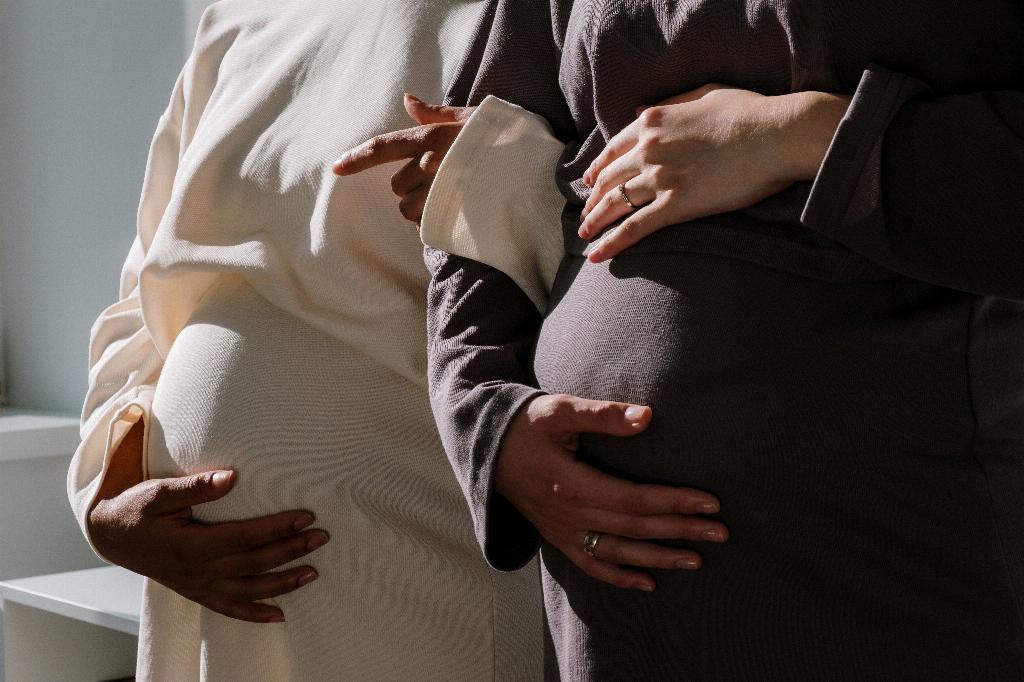When discussing the average age at which women become pregnant, it is essential to examine the evolving trend of maternal age in childbirth. In recent years, there has been a notable shift in the demographics of new mothers, with the median age of women giving birth in the United States rising from 27 to 30, marking the highest recorded age for childbirth. This shift signifies a significant departure from traditional norms and prompts a reevaluation of societal perceptions surrounding motherhood.
The Rise of Older Parenthood: A Personal Perspective
As older parents like Jacobs celebrate milestones such as Mother’s Day, they reflect on the advantages of parenthood at a more mature age. Jacobs, a mother in her 40s with a 9-year-old son, acknowledges that the additional years have provided her with greater levels of resources and stability compared to her hypothetical 20-something self. This sentiment underscores a growing sentiment among women who choose to delay motherhood until later stages of their lives.
Factors Influencing the Average Age of Pregnancy
Several factors contribute to the upward trend in the average age at which women choose to become pregnant. Societal shifts, such as increased educational and career opportunities for women, play a pivotal role in delaying motherhood as women pursue personal and professional goals before starting a family. Additionally, advancements in fertility treatments have empowered women to extend their reproductive years beyond what was once considered biologically feasible.
The Benefits and Challenges of Delayed Parenthood
Delayed parenthood offers a spectrum of benefits and challenges that shape the experiences of women who choose to become mothers later in life. On one hand, older parents may enjoy greater financial stability, emotional maturity, and life experience, which can positively impact their parenting journey. However, older maternal age also brings unique challenges, such as increased health risks for both mother and baby, potential fertility issues, and concerns about energy levels and longevity.
Maternal Age and Child Development
Research on the relationship between maternal age and child development yields mixed results, with some studies suggesting potential advantages for children born to older parents, such as enhanced cognitive development and emotional stability. However, other research points to potential risks, including increased chances of genetic anomalies and age-related parenting limitations. Understanding the nuanced interplay between maternal age and child outcomes is crucial for informed decision-making.
Navigating Social Stigmas and Expectations
Despite the increasing prevalence of older parenthood, societal stigmas and stereotypes surrounding maternal age persist. Older mothers may face judgment or scrutiny from others who hold traditional views on family planning, leading to feelings of inadequacy or isolation. It is essential to challenge these stereotypes and recognize that motherhood transcends age, encompassing a diverse range of experiences and perspectives.
Empowering Women to Make Informed Choices
As women navigate the decision of when to start a family, it is crucial to empower them with accurate information, resources, and support. By fostering open conversations about the complex factors that influence maternal age and pregnancy timing, individuals can make informed choices that align with their personal goals and values. Every woman’s journey to motherhood is unique, and it is vital to respect and celebrate these differences.
Conclusion: Redefining Motherhood in the Modern Era
In conclusion, the average age at which women become pregnant reflects a dynamic interplay of societal, medical, and personal factors that shape the landscape of motherhood. As maternal age continues to rise, it is essential to embrace diverse narratives of motherhood and recognize that there is no one-size-fits-all approach to starting a family. By acknowledging the complexities and nuances of delayed parenthood, we can promote a more inclusive and supportive environment for mothers of all ages.

